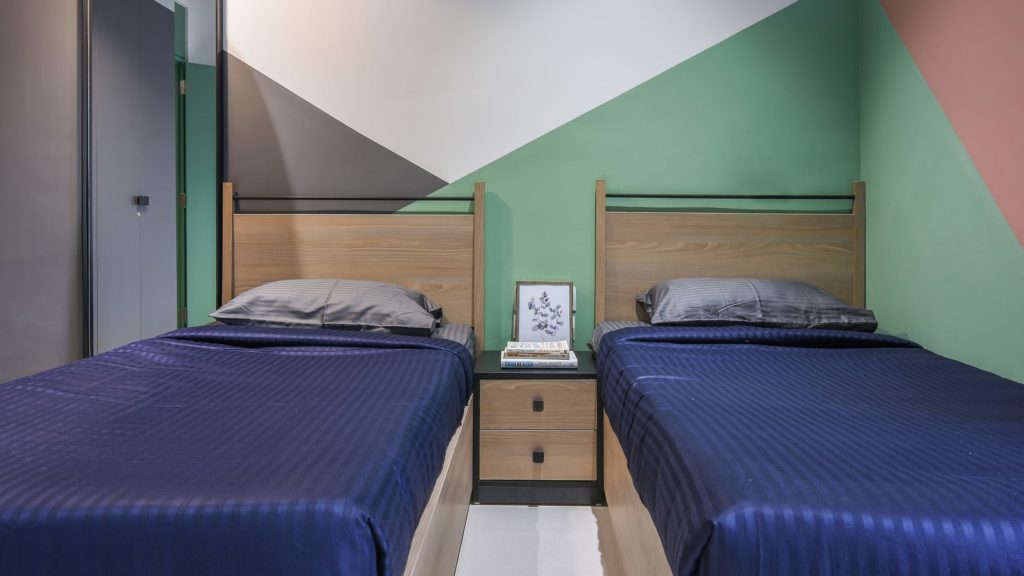Co-living Etiquette

Co-living Etiquette
In this world, there are innumerable ways to behave.
What we understand to be acceptable often varies between people or people. And coexisting communities comprise people from various backgrounds, cultures and experiences of life.
Besides, the co-living model gives rise, as in traditional rooms, to people who move in and out more often.
For co-living community managers, it is so essential that a set of rules or living guides can be applied to the various house. This fluidity is necessary. Otherwise, people may by chance behave in such a way that they are considered disrespectful, injurious or messy that unnecessary tension can occur between the groups.
There are rules for building harmony in a shared space. These rules should be broad, as well as specific. For example, it’s equally as crucial for one rule to be “show respect to your housemates” while another is “don’t leave any dirty dishes in the sink”.
Let’s dive in!
Coliving rules for a happy community
A lively community guide will set the bar for the behaviours that are expected and not tolerated in the house. It is important not only to inform residents of these rules but also to show them clearly in all areas as a reminder.
Furthermore, what is happening when residents violate the rule at the start of their stay should be discussed. Transmit these ramifications verbally and in writing. When something grave happens, and a tenant needs to be removed, the action to present these scenarios, in the beginning, will later protect you if any legal action is taken.
Look at the 10 co-living rules of the community that co-living hosts can enforce in their own areas.
Make the effort to get to know your housemates: The community is welcome! Welcome! You must try to know your new roommates right now that you are here. We thrive when every member of our community works and takes some time to learn the names of each other. Since this is a standard room, it is essential to share a little about yourself. Also, ensure that people come and go say hello. If people are ignored, they can even feel isolated by mistake.
Clean up after yourself (if you use it, clean it and tidy it away): When you use the kitchen, bathroom, or shared area, make sure you clean up when you’re done. Don’t let someone else clean up on a dirty dish in the sink. If you take your toiletries to a shared bathroom, pack them and take them with you when you’re done. If you’re eating out of a food container in a common area, throw it out / recycle it when you’re done. Little things like this help keep the space clean and tidy.
Consult the house before welcoming a party of guests: Inviting a group of friends over, even if they’re only a handful, might distract other people. If you want your friends above, make sure you ask the party first. Of course, when they do arrive, be respectful of space by not being too loud, clean up after yourself, and be friendly to all the housemates who come and go.
Quiet hours are from 10 p.m. to 9 a.m.: Everyone has different sleep habits, and quiet hours allow us to value them. Quiet hours means no noisy phone calls, media streaming or conversations in shared bedrooms and/or communal areas during this timeframe. Think about it if you’d like to be woken up by someone else’s noise, and then show the same respect to your roommates.
Don’t play your media on speakers — use headphones: The media can be very distracting, and not everyone likes the same things. Plus, if you play the media out loud and it bothers someone else, it puts them in a very awkward situation if they have to ask you to turn it off. To prevent conflicts, the rule of thumb is to play it in your headphones until every single person in the house says it’s ok.
Safety first! Make sure to secure all windows and doors before leaving the property: All of us share a room that means that we depend on one another to keep our things out of the way and our colleagues. When you’re coming and going, close always and lock all the doors, and secure the windows if you’re the last one out. All of them have in them valuables, and it’s our collective duty to protect them.
If sharing a room, keep your space clean and put all valuables in the lockers: In standard rooms, you must be intelligent to optimise your space. Always sweep up your place and don’t mess. If you leave clothes piles all over, your companions who have to look at your mess walk on the doors. If your things are kept clean, we have a degree of appreciation from our people. Keep your valuables inside for an additional safety layer if there are lockers in your room.
Don’t keep your personal items in the common areas: Just as when you’re done, throw things away when you leave a shared site, put your personal items away. The community areas are built to be fun for all. Leave your things everywhere means less room for anyone to use the shared space. Moreover, if you store your materials in a common place, people may believe that they are communal and use them for themselves, or may even error. Play it on the safe side and never give up.
If you’re a smoker, take it outside: But it’s important to state this may seem obvious. Smoking inside the house is not allowed. If you want to know where to smoke, ask your community manager. If you want to know.
How to apply these rules kindly?
For the community to live as harmoniously as possible, these rules must be taken seriously.
As mentioned above, when moving in, you should talk to each new member about these regulations. Ensure that you also send you a written copy to which you can refer. It is also intelligent to show them all over the house (in the common areas, kitchens, bathrooms, etc.) to remind and encourage members to follow the rules for their entire stay.
For example, if someone commits a severe crime such
as theft, you could take them from the house.
However, if they violate one of the above rules, respectful
conversations must be corrected before major actions can be taken.
These enforcement rules are recommended:
Issue a verbal warning: let the resident know they have violated a rule and first of all, explain why the rule existed. You want this conversation to show respect and create a safe conversational space in private and away from other members. After you explain why the rule has to be followed, if anything, listen to what they have to say and answer questions. You want to leave this meeting with confidence that they will not again break the rules.
Written warning: When rules are breached, written notification is now time to issue. This is more serious and must show why a written notice is being issued and what will happen if the rules are breached again. This documentation is provided if you need to expel the individual and back up your reasoning.
Consult a lawyer: When this person continues to breach the rules and disregard the notices, then it is high time to consult a lawyer to ensure that you follow the legal eviction steps correctly. You don’t want to be in a position where the person you are evicting requires the protection of attorneys and sees grounds to prove that the expulsion was unjustified or unconstitutional.
Eviction: The eviction laws differ between room and place. We encourage you to consult your lawyer so that any step you take conforms to the latest rules.
Good rules make the group happy:
Everybody is different, and rules for a shared space help us all live together in peace. Of course, rules can’t prevent disagreements from happening or tensions to rise from time to time, but they certainly help.




